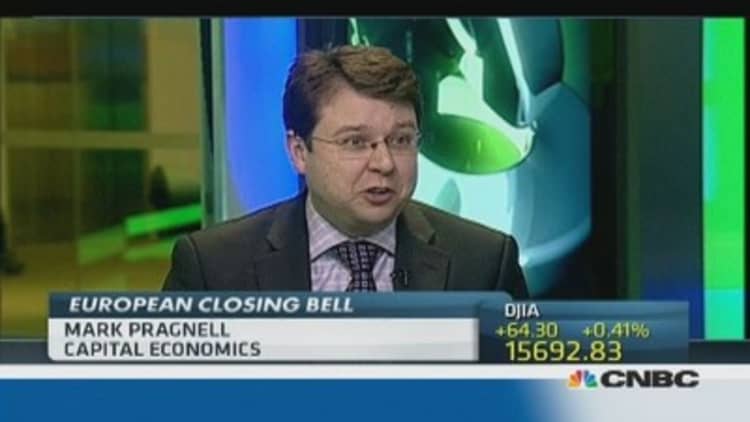"Only whites need apply." It's a phrase that would bring any American back to the memories of the segregated south.
Except this is a sentiment that was recently expressed in present-day Netherlands, and it was not meant to stir debate about the past. It was a job advertisement.
The owner of a Dutch cleaning company has been splashed across front pages this week after admitting on the company's Facebook account that he only wants white workers and calling other employers who think likewise, but say nothing, hypocrites.
More from The Christian Science Monitor:
Think you know Europe? Take our geography quiz.
Time to pitch in? Netherlands moves to the fore of rethinking welfare
Xenophobes unite? French, Dutch far-right weigh alliance
Wesley de Laat, owner of Budget Cleaning Brabant, has been lambasted for his "whites only" stance and his later defense. "White workers are better than non-white workers," he told the media this week. "I don't discriminate," he went on. "I just don't invite them for interview. Poles, Moroccans, any non-whites are not going to be hired to work for this company. Ahmed and Ali are probably very good people, but I don't want them working for me."
Mr. de Laat's job announcement, which has since been removed from Facebook (though it is still viewable in Google's cache), is just the latest of several episodes to have shaken the Dutch sense of tolerance and cast a critical eye on growing xenophobia across Europe.
Read More
His rant came in the same week that the government-funded Netherlands Institute for Human Rights released a report showing that inquiries about discrimination to their organization shot up by 75 percent between 2012 and 2013. Particularly worrisome was discrimination in the workplace.
The organization's Marysha Molthoff says the statistics are not a sign that discrimination is necessarily on the rise; rather, they show that the nature of discrimination is changing. "It's becoming more visible, and people are being more open about it."

This trend has come hand-in-hand with the resurgence of anti-immigrant parties across the continent, poised to score historic wins at European parliamentary elections next month. In the Netherlands, it is Geert Wilders and his Freedom Party that have tapped into Dutch unease about immigration, particularly of Muslims.
Yet while the rise of such parties – some of which have been openly anti-immigrant, some anti-Semitic, and all nationalistic – has stirred panic in some corners of Europe, it's also forced a public debate on the realities of a changing Europe.
Read MoreECB comments knock euro, but not much
In the Netherlands, Ms. Molthoff says that debates about discrimination kicked off in force with a report by the European Commission against Racism and Intolerance, released last October, that criticized the Netherlands. "The settlement of Eastern Europeans in the Netherlands, as well as Islam and Muslims have been portrayed by politicians and media as a threat to Dutch society," it said.
And the annual controversy over the Dutch Christmas tradition of "Black Pete," the black-faced sidekick of St. Nicholas, grew to a crescendo this year after the United Nations waded into the debate – ultimately calling for more public discussion on whether the beloved figure is racist and whether the Dutch are racist for holding him so dear.
Read More
Mr. Wilders continues to rail against the "Islamization" of the Netherlands and Europe at large – and more recently against the arrival of Romanians and Bulgarians to the country. But he is widely believed to have taken a step too far recently, by leading an anti-Moroccan chant at a political rally. It provoked a widespread backlash.
"Society said he has crossed a line," says Molthoff. Now, with the cleaning company, she says, "this is also a moment when people say, 'this is not allowed.'"
—By Sara Miller Llana, The Christian Science Monitor

